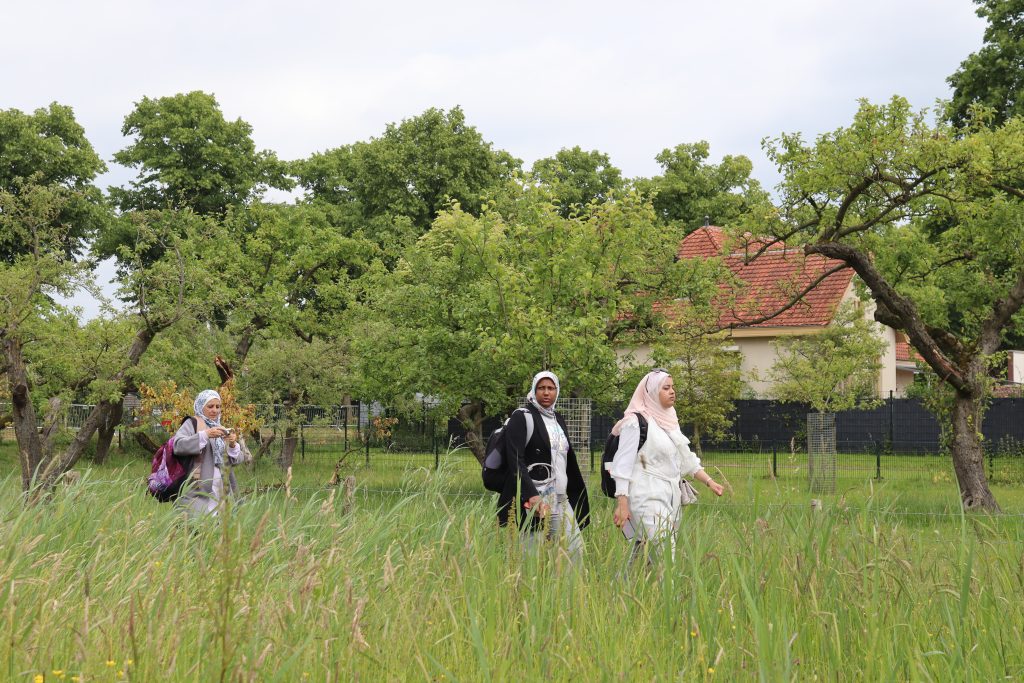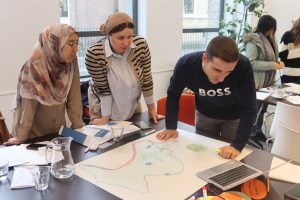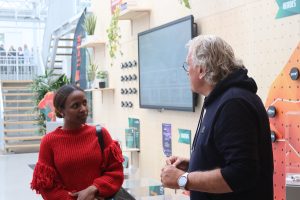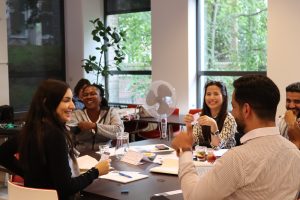Training abroad enables focused learning, international networking, and out-of-the box thinking and inspiration, leading to sustainable impact on the local level. In this article, we highlight five areas of sustainable impact of training abroad, based on participant insights.
- Peer learning: Fellow practitioners are a key source of learning and inspiration
- Study visits and case studies: Experiencing the theory applied in practice
- Cultural immersion: Gaining new perspectives from life abroad
- Uninterrupted learning in a focused environment
- An international network for sustained collaboration and inspiration

Fellow practitioners are a key source of learning and inspiration
Networking with fellow participants from other countries consistently emerges as one of the most impactful aspects of training. The exchange of ideas, particularly with participants facing similar governance challenges, provides input for new approaches and creative solutions beyond the course content. According to our 2023 impact research, participants often highlight how sharing experiences with peers from different countries enriches their learning.
As Ayat Al Tawil, Project Management Specialist USAID in Jordan, a participant from our Local Economic Development course in autumn 2024 puts it:
“Meeting people face to face is really important. The informal talks about their experience and their knowledge is an addition to the knowledge that you gain from the training itself.”
Experiencing the theory applied in practice: Study visits and case studies
Study visits are a highly valued component of the training programmes. They provide concrete examples of how local solutions can address global problems. These visits allow participants to witness real-life applications of the theories discussed in the courses.
Tigist Sengogo, Policy Officer for Skills, Jobs and Education at Netherlands Embassy in Ethiopia shares: “Seeing how the concepts that we learn in the classroom are implemented and organised in reality is very beneficial. It helps you to connect the dots between the concept and the implementation process. For me that makes the whole experience very enriching.”
Gaining a broader perspective from life abroad
Exposure to different cultural practices and systems provides participants with a fresh perspective on governance issues.
Abdal Nasser Morrar, Head of Budrus in the West Bank, Palestine, reflected on his experience: “Thank you for this opportunity that allowed us to get a glimpse of the cultures of different people and how countries are managed (…). This visit will be a pivotal moment in my life. I have seen things I have not witnessed in my country and society: [a different] culture, development, and creativity.”
Training abroad also offers participants a chance to reflect on how societies are organised differently, from infrastructure to public services. Ayat Al Tawil, expressed a similar sentiment. She felt reassured by the fact that no country is perfect, but a lot can be achieved.
“It was also somehow a relief to know that the Netherlands also has its struggles. It gives me a push going back to Jordan, knowing that no country is perfect. There is always something that can be done. It takes consistent efforts and patience and collaboration, but we can do this. We can replicate this, even if it starts at a small scale of one municipality.”
Uninterrupted learning in a focused environment
With responsibilities far away, participants can concentrate fully on the course programme, engage with experts and fellow participants, and immerse themselves in the country and culture. Abdal Nassar Morrar, who joined the Strategic Planning of Water Service Delivery in the West Bank 2024 training concludes, “I tried to make the most of every minute in this country… I was looking for how this country achieved such development and progress.”
This focused environment facilitates learning and encourages participants to reflect critically on their contexts and explore innovative solutions to the challenges they .
“It was really important to have all the theory being discussed and to do all the exercises and assignments as a group. The first week is very much dedicated to diving deep into the concepts and how we can work with those ideas.”, says Tigist Sengogo.
An international network for sustained collaboration
Knowledge exchange, reflection and collaboration between participants continue long after the training: 50% of participants continue working with peers from the same country following their training, and 30% engage in cooperation with practitioners from other countries (Impact Report 2023). By maintaining their international network, participants are able to exchange ideas and draw inspiration for innovative ways to overcome local challenges from fellow alumni.
Tigist Sengogo, who participated in Local Economic Development course in autumn 2024 reflects:
“The advantage of this training is that it is given with colleagues who come from similar contexts and realities. We are all challenged by the political developments and instabilities in our countries, so it is nice to see how things are done elsewhere. It was really interesting to learn from their experience and to receive tips and tricks from colleagues who are working in similar contexts.”
Enabling sustainable impact
Training abroad provides a unique opportunity for participants to broaden their expertise and perspective, foster international connections and knowledge exchange, and – above all – provide them with inspiration. The new experiences while following a training abroad support participants in their role as change agents and in creating sustainable impact in their organisations and communities.
Read more about the impact alumni are making here: Changing Gendered Realities Through Economic Empowerment in Burundi
Related courses
We offer a diversity of courses throughout the year. Here are several other courses you might like.



